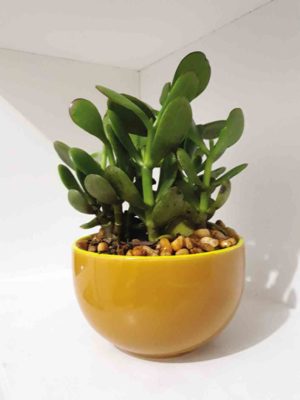Pros and perils of indoor plants

Plants are healthy decorations one can have at home. They spruce up spaces with their fragrances and lively colors. They often make an otherwise stark and manmade environment welcoming.
Unbeknown to many however, these green elements sometimes hide a harmful side beneath their beneficial surfaces. Though plants are usually pleasant, it is wise to know which ones are dangerous to humans and pets alike.
A refreshing toxin
The Paharpur Business Center in New Delhi, India would best exemplify the benefits of air-purifying plants. Containing over a thousand varieties of snake plants, areca palm and the jade plant, the building is one of the healthiest in the Indian city.
The building prides itself on increasing oxygen supply and reducing airborne pollutants.
House plants such as those mentioned are favored because they absorb toxins in the air.
For the same reason, however, they are not suited for young children or pets. In case of accidental ingestion, the jade plant can cause diarrhea and vomiting to children. Dogs exhibit symptoms of depression and heartbeat irregularity if they bite the leaves of the “money plant.”
The snake plant, meanwhile, is toxic to humans. It can sometimes produce allergic reactions, but its danger lies in its consumption. It can cause mouth pain, salivation and nausea.
It is also not suitable for pets, causing similar side effects. Thankfully, these symptoms usually last for a short while and can be counteracted.
A dangerous beauty
Known as the “plant of immortality” among Egyptians (Manchanda), the aloe vera plant is well known for its benefits to the skin and hair.
The gel that is extracted from the plant’s leaf has been proven to help with treating premature aging, sunburns, rashes and cuts (www.medicalnewstoday.com). Its juice is also an effective mouth rinse to cure canker sores and eliminate dental plaques.
For some people, however, aloe vera can trigger allergies. These people exhibit skin and stomach problems when using aloe vera-based products.
Aloe vera juice, especially in its unprocessed form, can cause dehydration, lower potassium level, and induce gastrointestinal problems especially in large amounts. The juice is not advised for pregnant or lactating women as it may cause uterine contractions. The aloe vera plant is mildly toxic to cats and dogs too.
A subtle poison
The Dieffenbachia plant, or dumb cane in layman terms, is common among Philippine households.
It is admired for the eye-catching pattern of its leaves and its easy maintenance. The former NASA scientist B.C. Wolverton also identified the plant as an effective means to combat indoor air pollu ti on.
Despite its benefits, the dumb cane is toxic when ingested, causing burning sensation in the mouth. It can trigger swelling or numbing of the throat.
According to the US National Library of Medicine, it can cause human and animal deaths if medical care is not sought and administered immediately. Generally speaking, the effects can be remedied in most cases.
Decorate safely with plants
Considering plants have both beneficial and harmful effects, one must be mindful in maintaining these items at home. They clean and revamp our household spaces, but they can cause unwanted side effects.
At best, plants should be displayed away from children and pets. Hanging plants are effective, but they must be securely fastened to avoid sudden drops.
Falling leaves should be swept away to prevent curious hands from taking them. In case of accidental ingestion or allergies, the contact details of the corresponding medical centers should be kept at hand.
Plants can also cater to bugs, so these are best kept away from food. They have to be watered regularly to ensure maximum benefits and long lifespan.
Bedrooms and bathrooms would benefit most from these elements as they purify the air and offer a relaxing vibe.
Now that green living is becoming widespread, plants are starting to populate many homes. While their benefits are unquestionable, it would be wise for homeowners to know first the features of their plants.
As long as proper maintenance is carried out, plants can improve our homes without harming us. Healthy environments are usually found in nature, but the total opposite can be produced in nature unkempt.
(Sources: www.dengarden.com; www.medicalnewstoday.com; www.alternet.org; www.ncbi.nlm.nih.gov)
The author is a licensed architect who studied abroad and currently works for DSFN Architects. During the making of this article, she bought a jade plant to keep her company and provide inspiration.














